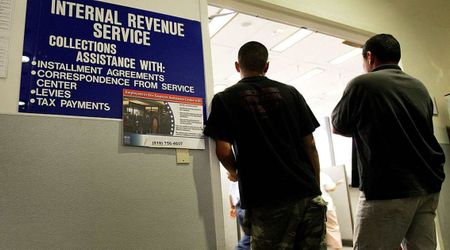Why a Modest Tax Refund Could Signal Good Financial Health

As tax season unfolds, millions of Americans eagerly await tax refunds, often viewing them as a windfall. However, financial experts are advocating for a different approach; one that involves aiming for a minimal refund, or even owing a small amount. Surprisingly, having a modest tax refund, perhaps as seemingly insignificant as $18, could signal good financial health. Here’s why:

Firstly, it’s essential to understand that a tax refund is not a government bonus but a return of your own money. Throughout the year, most employees have taxes withheld from their paychecks, and if this amount exceeds their tax liability, they receive a refund when they file their taxes. In essence, a refund represents money that you could have had in your pocket throughout the year.
Michael Wallace, CEO of Greenback Expat Tax Services, raises a critical question: would you rather have that money throughout the year or receive it in a lump sum later? The answer largely depends on individual financial habits and goals.
For individuals who are disciplined savers or investors, having more money in their paychecks each month can lead to greater financial growth. By adjusting their tax withholding to reduce their refund, they can put that money to work immediately, whether it's paying down debt, investing, or building an emergency fund.

However, for others, a large refund may serve as a forced savings mechanism. This lump sum in the spring can be an opportunity to tackle financial goals that might otherwise be neglected throughout the year. It's essential to recognize one's tendencies and financial behaviors when determining the optimal approach.
For those inclined to adjust their withholding to receive a smaller refund, there are practical steps to take. Filing a new Form W-4 with their employer allows individuals to specify the amount of taxes withheld from their paychecks. Moreover, using the previous year's tax return as a reference point or utilizing the IRS's withholding estimator tool can help determine the appropriate adjustments.
Erika Kullberg, a personal finance expert, suggests an alternative perspective: turning the interest situation in one's favor. "When you look at the interest on high-yield savings accounts, you can earn upwards of 4% or 5%," she says.
"Wouldn’t you rather have that money coming directly into your paycheck and then earning 5% on that money? That’s a great outcome rather than waiting an entire year to get a tax refund," she adds.

Consider this scenario: if an individual received the average tax refund of $3,213 this year and adjusted their withholding to receive less in their paychecks, they could earn approximately $73 in interest over a year in a savings account yielding 5%. While this sum may appear modest, it reflects a proactive approach to maximizing financial resources.
Opting for a smaller tax refund necessitates careful deliberation and planning. It requires understanding one's financial goals, habits, and the potential benefits of having access to funds throughout the year. "It takes some planning and some discipline, but it can definitely be worth it," says Wallace. "70 bucks is 70 bucks."




















